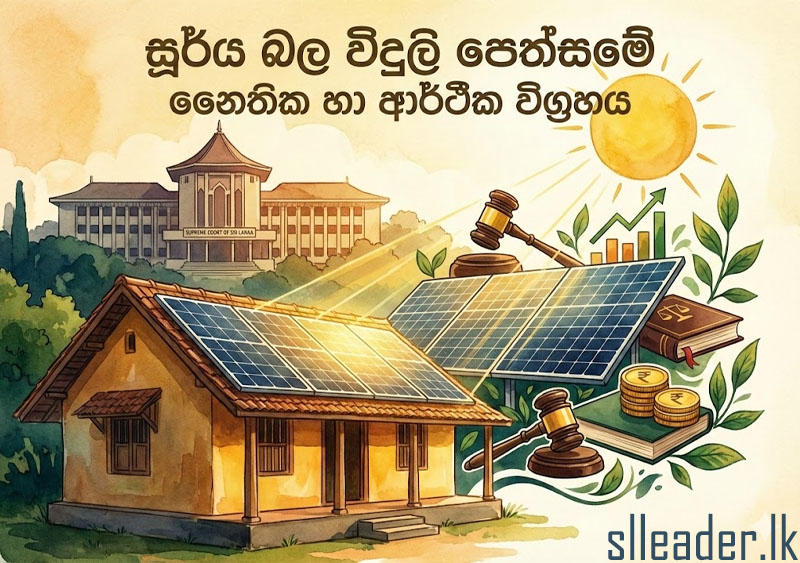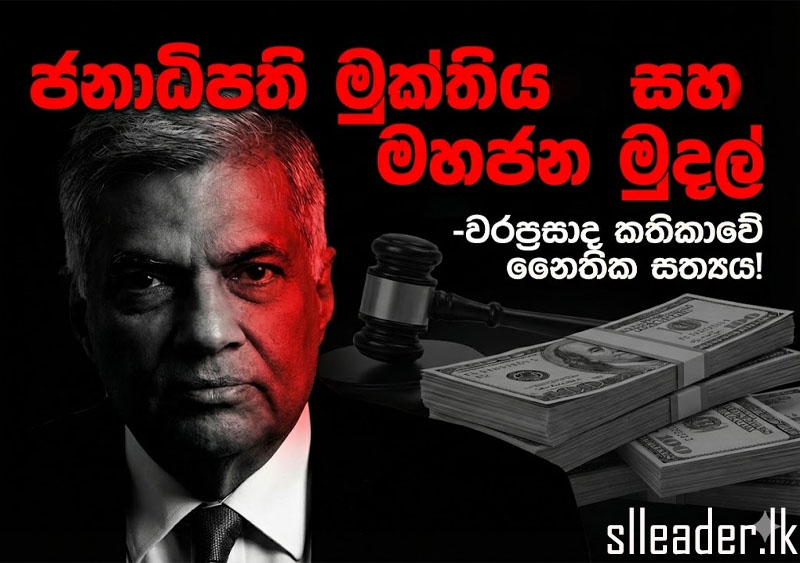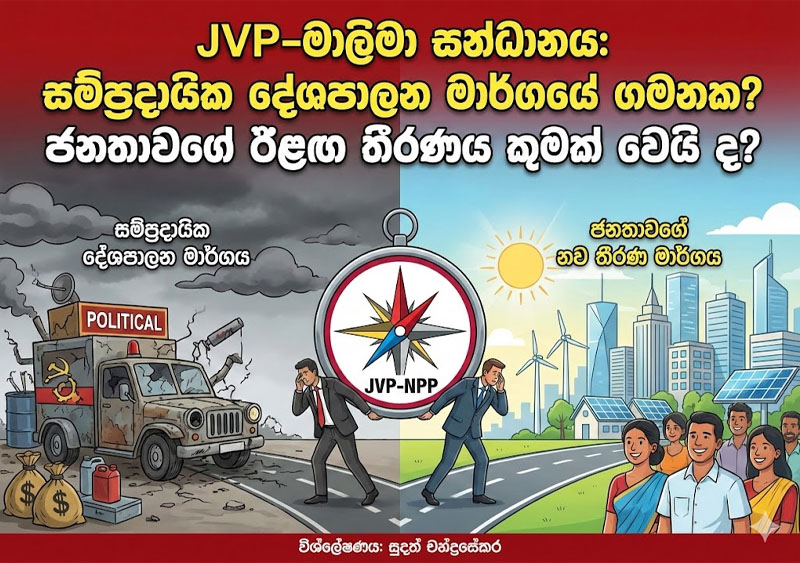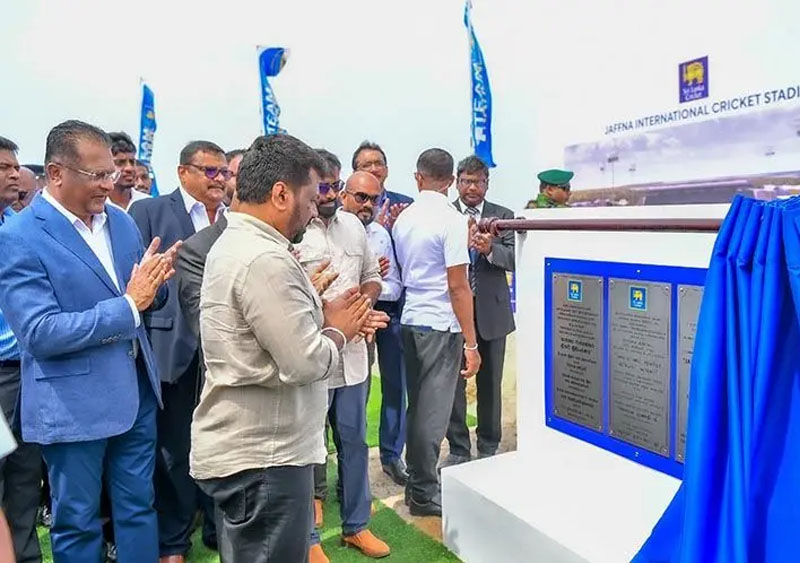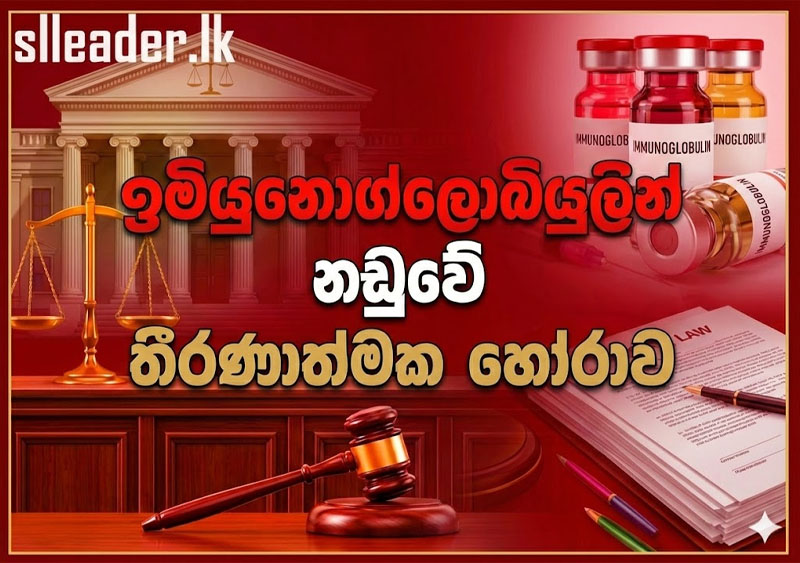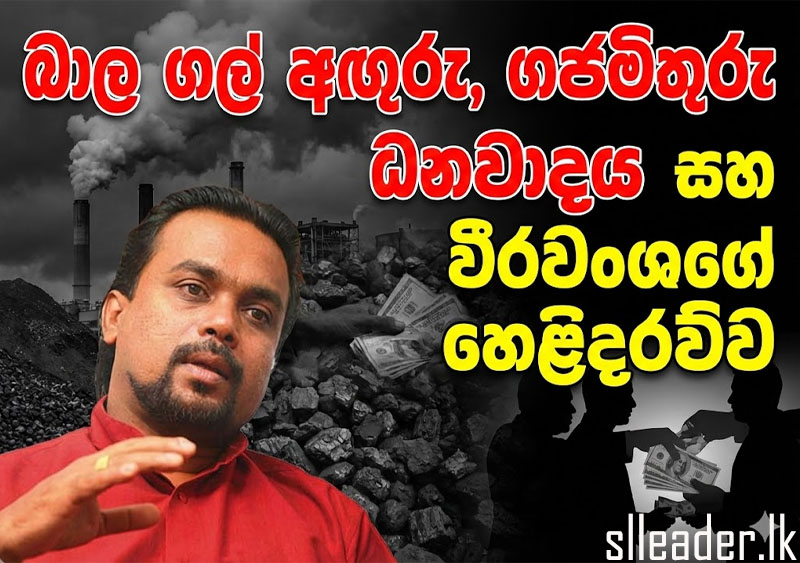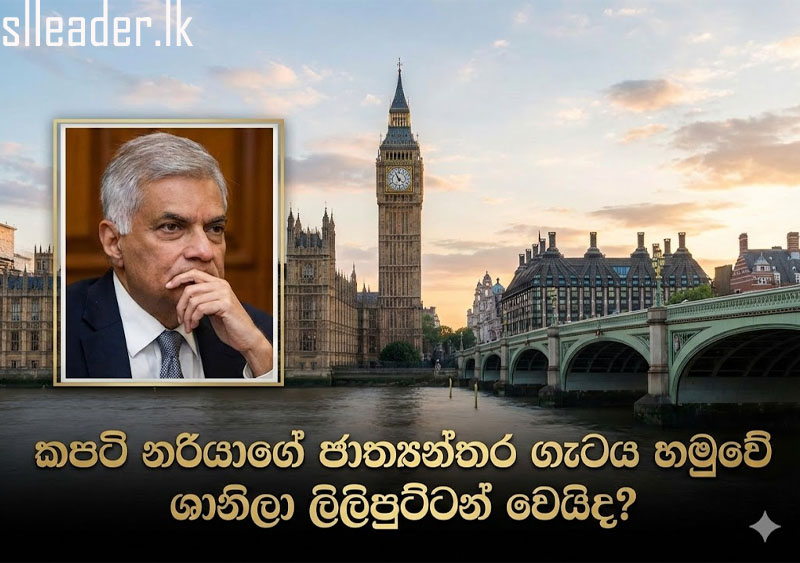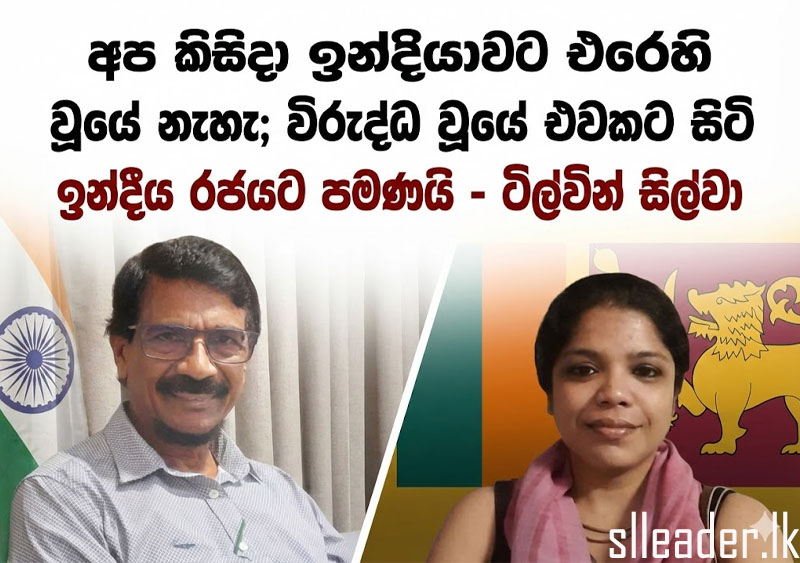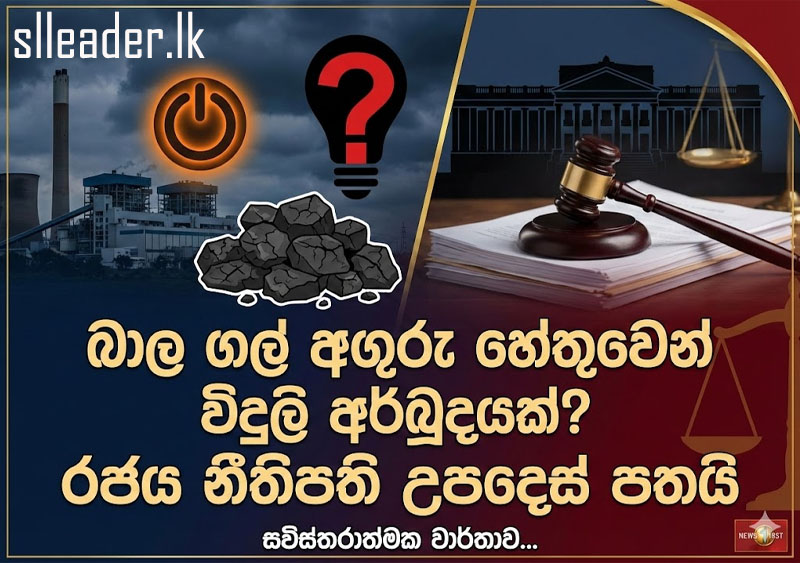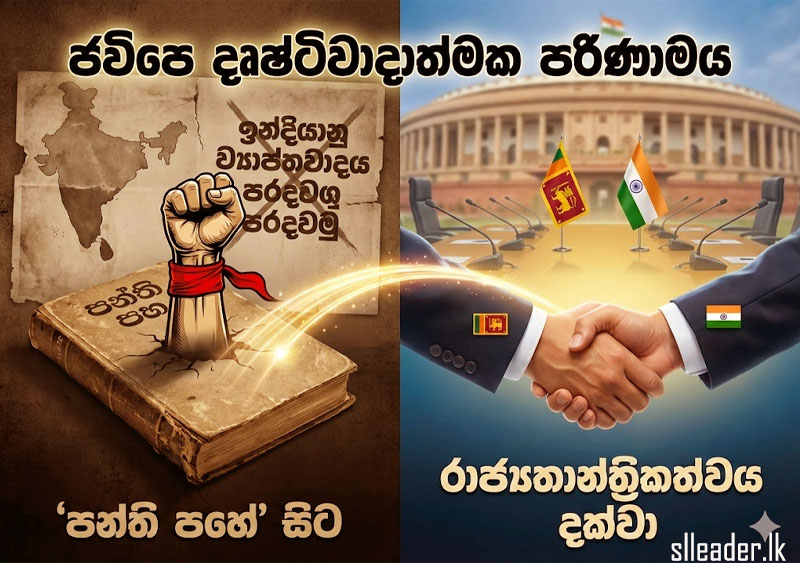Ranil Wickramasinghe, who became the leader of UNP in 1994, has been the leader of UNP for 29 years since then.
While we consider from the point of view of winning an election in order to govern the country, even during the last 30 years since 1993, Ranil has been able to govern the country at least as a Prime Minister under a President for approximately 07 years and a few months only. This is an obvious statistic well-known among most politicians around the world.
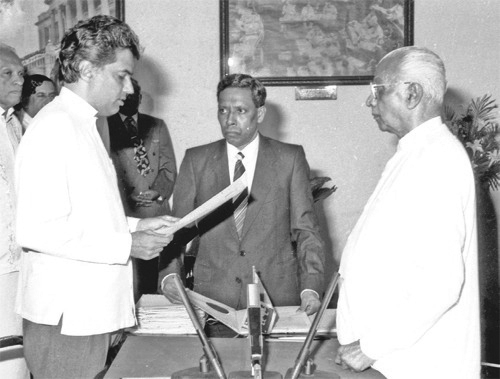
Accordingly, there is a possibility that any voter who prefers to see an era of UNP governance may take this simple data analysis into consideration to place the whole responsibility on Ranil Wickremesinghe's shoulders in relation to the collapse of the UNP Party Structure in the last 30 years. Consequently, the main results of establishing power by an indirect coup d'état dominated by the ethnic and religious extremism of Gotabhaya Rajapaksha at the climax of those 30 years of cold era of UNP, is also likely to be credited to Ranil's account. On another side, about the flattening of the UNP's vote base in the last general election due to the drastic split created by the opportunistic Sajith Premadasa is also possible to imagine in the same way.
Yet UNP voters should understand that the Real Political Picture here is much more complicated than the incomplete picture of that simple linear thinking. We therefore have to consider the composition and the content of UNP that came under the leadership of Ranil in 1994. Equivalently, it is obvious that there was a socio-political impact of a subtle Ethno-tribalism bred by Patali Champika Ranawak since the 90's. This has gradually developed into a major urban political current in the country until today.
If Ranil has organizational incompetence, arbitrariness, or social prejudice, they should be considered in parallel with the two main factors below, not isolated from them. If Ranil is isolated and criticized in such a way, it becomes an unbalanced and unfair analysis about Ranil's political practice and his professional life. Yet I ever expect not to hinder any weakness or prejudice of him if it continuously affects the party in a negative way.
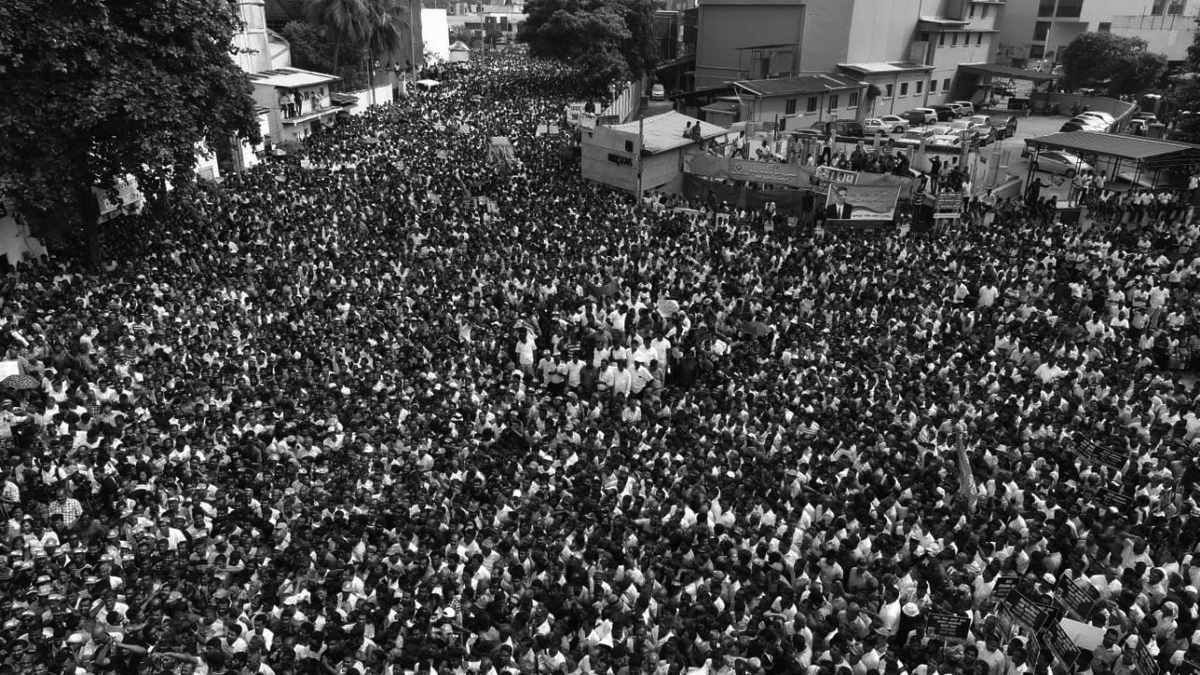
Initially, we should take into account the main 02 challenges Ranil had to face as the UNP leader for all this time. The Structural atmosphere of the UNP while the party was handed over to Ranil’s leadership in 1994 plus the Ethnic-Political-Hegemony emerged from outside the UNP and was widespread as an extreme neo-racialist political discourse were those 02 challenges. Thereafter, the political or non-political actions taken by Ranil himself too could be investigated in a similar manner. Since the UNP is now in a critical political moment where it needs to be reorganized as a new kind of party, aforesaid balance critical analysis is much more important than any other day of past history of the UNP.
On the one hand, Ranil had to take over the UNP in an era (1994) that UNP is gathering flies in its public meetings where all the NGOs, civil organizations, newspapers such as “Ravaya” and “Yukthiya”, all the leftwing parties, and many mass organizations including the JVP and SLFP had imposed a powerful political opinion holding the entire blame on UNP for the destruction of the south during the unfortunate 88-89 civil war.
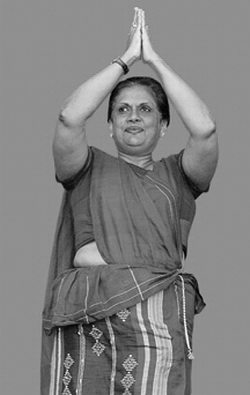
Similarly, the party Ranil had to take over was facing a new situation after Gamini Dissanayake and Lalith Athulathmudali broke away against the autocracy of Rnasinghe Premadasa. This was a major break up that happened not ever during the whole history of UNP since 1948. In another context, Ranil has to take over a UNP where its three foundation stones named Ransinghe Premadasa, Lalith Athulathmudali and Gamini Dissanayake (political characters that J. R. Jayawardene, brought up during his career) were all killed in different political terrorist attacks. This created a post-condition within the party.
Among all these matters, the essential factor related to the re-development of the party was the challenge of building a strong second-tier leadership for the party after Premadasa-Lalith-Gamini. Second-tier leadership is a leadership that nurtures the main leader with a variety of dimensions in order to take productive decisions that are cultivated with multi-pragmatisms in politics. In the same way, second-tier leadership is the fortress that protects the tranquility of the main leader.
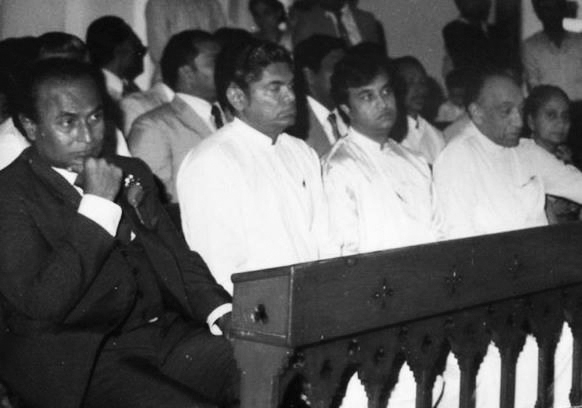
Senior members such as Gamini Athukorala, Karu Jayasuriya, Sajith Premadasa, Naveen Dissanayake came forward to fill this second-tier leadership gap, which is the backbone of a party. Though Gamini Athukorala was an individual figure who equipped not himself with mature organizational strength into the extent of Ranasinghe Premadasa, Lalith athulathmudali or Gamini Dissanayake, he was able to build rational political discourses inside and outside of the party for the next victory of UNP against the SLFP led Podujana Eksath Peramuna. And this made once the UNP win the Parliamentary election. Yet, unfortunately, in the moment where the party achieved this victory, Gamini Athukorala died as a result of a cardiac arrest. This loss gave growth to a vacuum within the arena of Second-tier Leadership Responsibilities. Consequently, Ranil lost a strong interlocutor who should have been with Ranil in pre-conversations before political decisions in order to preserve power.
None of the remaining second rank Karu Jayasuriya, Sajith Premadasa and Navin Disanayake can be considered to have been able to make a political intervention parallel to Ranil's range of knowledge. Although Sajith Premadasa's politics showed signs of being somewhat close to Ranasinghe Premadasa style politics, it is no secret that he has been engaged in a politics of a weaker model than his father Premadasa. Karu Jayasuriya was never felt by UNP members as their next leader. Navin Disanayake came into politics claiming his inheritance because of his father, Gamini Disanayake. Yet regardless of what way he operated within the UNP, people did not even remember his name today. Even today, he is a nobody to the UNP. Later, both Karu and Navin metamorphosed into Judas quality and transformed into non-UNPers who took shelter under Mahinda Rajapaksa’s ethno-centric politics for a long while. Thus, incidentally, among others, finally, Sajith remained in the basket as the second-tier leader.
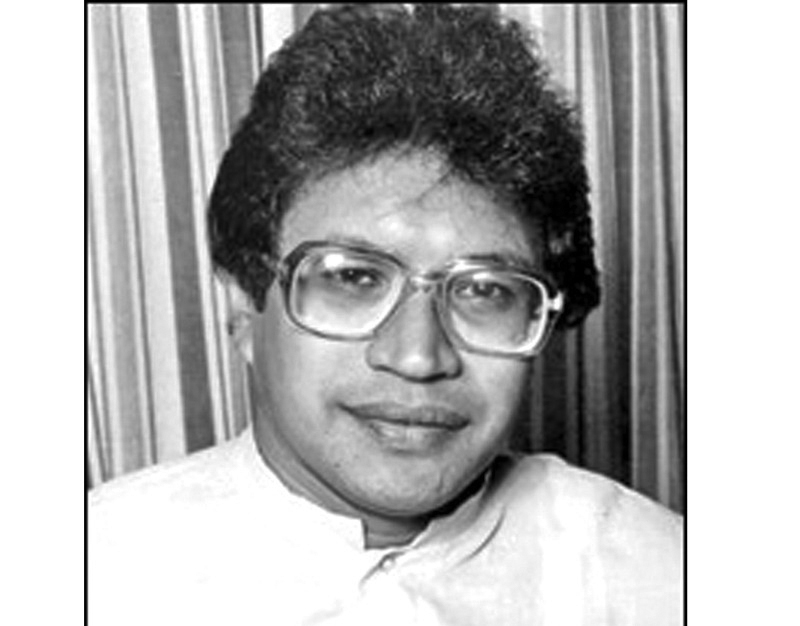
Sajith’s attitude reveals that he learned not even from his father, Ranasinghe Premadasa. Sajith's father R. Premadasa's political behavior should be considered. Because R. Premadasa, Sajith's father, faithfully helped J.R Jayawardene until he came to power as the president, and then tried to become the second President and engaged in hidden string-pulling politics against J.R. Jayawardena. Yet, from the beginning, Sajith was not involved in politics as mature as Ranasinghe Premadasa in the political time and space management, but he was engaged in an immature convulsive politics that surpasses his father in a negative way. Throughout his time in the UNP, Sajith worked hard to bring to the fore the misuse of the opinion that "Ranil can't" among the party members. This led to an unnecessary situation in which the party split into two unofficially and secretly. In the end, Sajith forcefully demanded the presidential candidacy, but Sajith was humiliated and lost badly in front of Gota, who came with a racist and religious-extremist agenda.
After Sajith’s fall in the presidential election of 2019, blaming the defeat on Ranil, he left the party and formed a “Front” named SAJABE, by temporarily reducing the UNP into a single seat minority party. It should be clear by now that the popular negative opinion about Ranil was a half-truth to everyone involved in this break-in. The damage done by Sajith to the UNP was greater than the damage caused by the formation of a new party (using a name similar to that of the UNP called UNF) by Lalith Athulamudali, who was expelled from the party for impeaching the UNP leader President Ranasinghe Premadasa in 1991, and Gamini Disinayake, who later joined Lalith. Likewise, the damage done by Sajith to the UNP was also greater than the damage done by the 18 senior UNP members who left the UNP with Karu Jayasuriya in 2007 to join Mahinda Rajapaksa. It is true that the damage caused by an unintentional destructive mind brings greater damage than an intentional destructor.
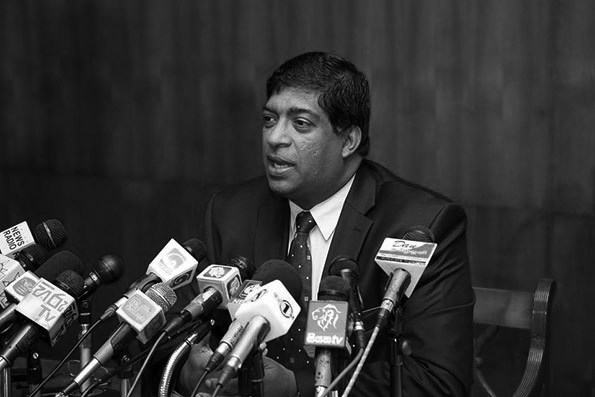
But parallel to all these events, a new figure joined the UNP representing the party of Lilith Athulathmudali who was an intelligent scholarly figure in the past. This new figure was a different kind of character who joined the UNP from the United National Front which was disabled due to Lilith's murder. He was a diligent figure who could fulfill the goals of UNP politics at a different speed, passing Sumit Athukorala, Karu Jayasuriya, Sajith Premadasa and Navin Dissanayake, who entered the UNP to fill the vacancy of the second-tier leadership. He is Ravi Karunanayake who had the capacity to quickly become the deputy leader of the UNP. His arrival was like a silver lining on the black cloud covering the UNP. Realizing the weak nature of the UNP and using Ravi’s leadership to rescue UNP from its decline was not a factor that had been seen in the beginning. It wasn't a factor that received much attention or recognition within the party. Instead, it was seen that the few members of the party who lacked organizational skills showed hostile attitudes towards him.
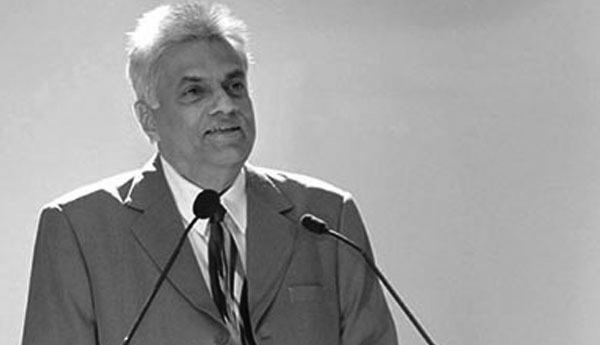
But he did not let any of those hostile attitudes hinder his journey and managed to perform every task he was given very well and was always a source of strength for Ranil in politics. In terms of organizing a party, he was another positive example of men like Lalit Athulathmudali and Gamini Dissanayake, who previously held second-tier leadership successfully. On the other hand, in terms of managing the economy and winning the attraction of international institutions, his neo-modern approach was far beyond the successful modern political personalities such as Ronnie de Mel and A. C. S. Hamid. He confirmed all those achievements through his day to day practice. Even during the 7 years and few months that the UNP was allowed to rule the country for the last 30 years, Ravi has managed to become the best finance minister in Asia and raised his professional prestige in politics as well as being admired by the community of economics in the Euro-US region.
Ravi was a more efficient leader than any other party member who competed for the second-tier leadership. He intrinsically did not reflect the urban characteristics of a less manly manhood. In the same way, he did not reflect the characteristics of a village headman such as Mahinda Rajapaksha. Ravi has always been a smart character who reflected the qualities of a civilized-urban-masculine-personality.
Ravi was a more efficient leader than any other party member who competed for the second-tier leadership. He intrinsically did not reflect the urban characteristics of a less manly manhood. In the same way, he did not reflect the characteristics of a village headman such as Mahinda Rajapaksha. Ravi has always been a smart character who reflected the qualities of a civilized-urban-masculine-personality.
Ravi was a more efficient leader than any other party member who competed for the second-tier leadership. He intrinsically did not reflect the urban characteristics of a less manly manhood. In the same way, he did not reflect the characteristics of a village headman such as Mahinda Rajapaksha. Ravi has always been a smart character who reflected the qualities of a civilized-urban-masculine-personality.
Ravi was a more efficient leader than any other party member who competed for the second-tier leadership. He intrinsically did not reflect the urban characteristics of a less manly manhood. In the same way, he did not reflect the characteristics of a village headman such as Mahinda Rajapaksha. Ravi has always been a smart character who reflected the qualities of a civilized-urban-masculine-personality.
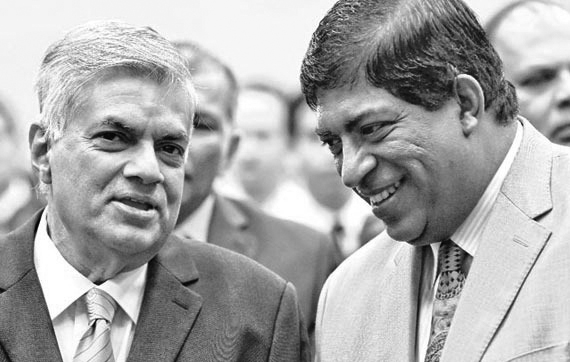
It is the conscientious faith-partisanship of not leaving the party and going the other way, no matter what contradictions. Right now, whether right or wrong, good or bad, Ranil and UNP still have 02 main stable characters who can be trusted and who have shown the virtue of not giving up even if the party falls to zero. One is Sagala Ratnayake, and the other is Ravi Karunanayake. Instead of leaving the party against some of Ranil's irremovable human weaknesses, they are the two who keep coming to the party by covering Ranil's shortcomings with action. They are the two who have the capacity to understand that a leader is not a god, and that the shortcomings of a human being can occur even from Ranil. This kind of understanding is absolutely necessary for the unity among individual members in a party.
From this, Sagala, who came to active politics as a senior UNP around the year 2015, kept his conscientious loyalty and often managed the areas of Ranil's human distance. In 1999, Ravi Karunanayake, who joined the UNP as the organizer of Kotte, not only maintained his conscientious loyalty, but besides covering Ranil's pathetic areas, he also repaired the damaged areas by working hard in those areas in a constructive manner. Among these, Ravi's active involvement in organizing the UNP's party machinery was one of the main difficult tasks he accomplished. Although it is a matter that is not visible to most people, Ravi's loss of deputy leadership and becoming inactive can be seen as one of the main factors that led to the collapse of the UNP today. Likewise, if Ravi had been the deputy leader of the party up to this long time, there would have been a chance to save the party without going to the point of a collapse of the party organization in the face of Sajith's betrayal. But Ravi's inaction made Sajith more fearless of such betrayal. Therefore, the time has come for UNP to correct the mistake made by disabling Ravi.
If there were 10-15 people who showed such conscientious loyalty to Ranil during the last 29 years of his UNP leadership, Ranil would have had the opportunity to be confirmed as the country's executive president 20 years before today. If that was the case, the economic history of the country that is being calculated today would have been one of a different refined model. What I am saying may not be understood by the politicians who have not studied Neo-modern Capitalism, who are racist or welfarist, who are too lazy to read an analytical article, or the general voters who failed Ranil in many elections for the sake of their mythical ethnocentric political minds.
Yet, regardless of the inner-contradictions of UNP, another political situation allowed not Ranil to win this target. This has emerged from the politics that arose outside the party structure of the UNP. That is, the extreme political axis of the ethnocentric Sinhala Only discourse that initiated in 1956. This has started crawling again from the village to the city with a discerning neo-violent form through Patali Champika Ranawaka the modern racist. This Neo-Sinhala-Only malice first entered the JVP and secondly the SLFP and created an anti-UNP and anti-economic political cancer like movement by mythically baptizing Mahinda Rajapaksha as the unofficial rural Madamulana pre-Colonial king of this island nation.
If the United National Party is going to reorganize again, the seniors of the party must hold a scholarly dialogue regarding the rise of the aforesaid anti-economic rural ethno-politics that has been slowly operating outside the UNP’s structure and grown up into an extremism for a period of 29 years since Ranil took over the leadership of the UNP.
Therefore, there is a challenge that Ranil had to face parallel to or even above all the contradictions within the UNP party. It is the sudden arrival of Patali Champika Ranawaka as a third force with a subtle political discourse that was unconscious to most politicians of the UNP. Hela-Urumaya created extreme political discourse based on the ‘Otherness’ of Prabhakaran. This discourse started doing politics from the 90s till 2005 by looking for a place to live in a mainstream party Structure to involve in macro politics in Sri Lanka. Later, it ended up giving birth to a snake of vicious Sinhala-only ethno-tribalism that was waiting to defeat Prabhakaran while sitting on the lap of Mahinda Rajapaksha’s ‘Madamulane Political Brothers & Company Private Ltd’. This Company let the whole country into an economically ignorant dead-end and plunged the economy into a precipice.
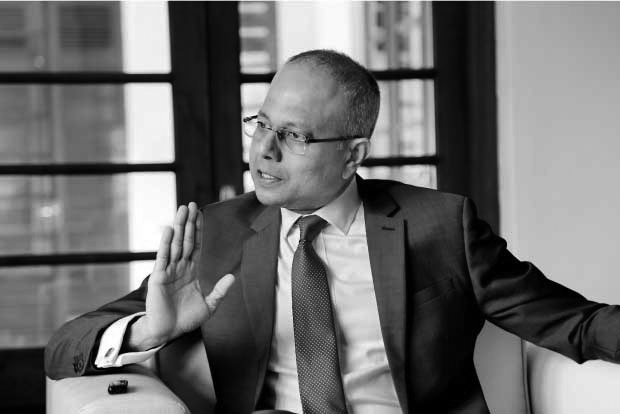
Even the Coalition-government (Sabhaga Anduwa) that defeated the UNP in 1970, represented not such a political composition. The direct reason for that is the two parties, the Samasamaja and the Communists, which went into coalition with the SLFP. These two parties have had a greater political power and recognition both inside and outside of the country at that period of time. During the era where SLFP was participating in coalition politics with these two Left Wing Parties, the political party machines of these Samasamaja and communist were much stronger compared to today, and the international politics at that time was not in a collapsed state like the Soviet Union is today. Due to the international political power of the Soviet Union, the political recognition and power of these two Left Wing parties in the country was much higher compared to today.
This is why Dr. N.M. Perera, who was an English scholar and the leader of the Sama Samaja Party, was given the title of Minister of Finance while Colvin R. de Silva the Trotskyist, an expert English medium scholar in the field of law, was given the title of Minister of Plantations and Constitutional Affairs in that coalition government. The state powers of those ministerial positions were not reduced within two three months (as Chandrika did to JVP) therefore N. M and Colvin were benefited with considerable power to influence the major political decisions of the coalition government at that period of time. Thus, until the intervention of Felix Dias Bandaranaike into Sirimavo’s politics and created an unethical pervert family bond in later stages, N. M and Colvin remained as influential figures in that coalition government.
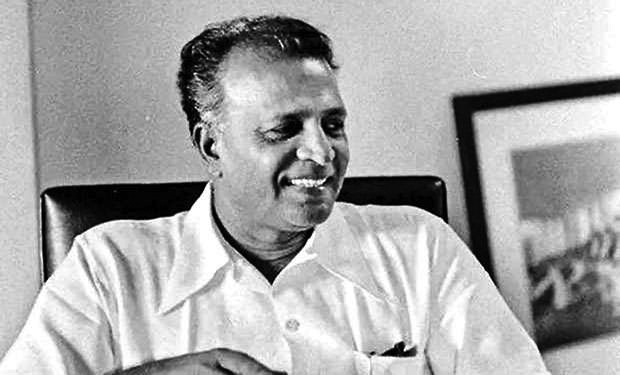
On the other hand, India at that time was a State that represented the camp of the Soviet Union. Additionally, there was a very close kinship type relationship between the ruling Gandhi family and the ruling Bandaranaike family. Therefore, there was no direct or indirect government support given from both Indian and Sri Lankan administrations to extend ethno-centrism with the aim of growing extreme terrorism in Sri Lanka.
Therefore, the whole essence of the coalition politics of N.M Perera and Colvin with the SLFP leader the Prime Minister Sirimavo, which emerged in 1970, was totally different from and opposed to the extreme ethno-centric politics of Champika with SLFP leader Mahinda Rajapakse who became the Executive President on the 19th November 2005. Considering the coalition politics with SLFP, it must be said that the practice of N.M. Perera and Colvin R. de Silva in public administration and in alleviating the tensions between the ethnic groups in Sri Lanka was more optimal, civilized and effective than the coalition politics of Champika and JVP.
Therefore, while N. M. Perera of the Samasamaja Party and Colvin R. de Silva of the Communist Party were in coalition with Mrs. Sirimavo, the "Sinhalese only" racism that intrinsic to SLFP and the "Tamil only" racism outside of it was shrunken without the power to expand into terrorism. But due to the fallout between Champika of Hela Urumya and Mahinda Rajapaksa of SLFP, the Sinhala-only ethnocentric tribalism within the SLFP expanded, became extreme, intensified and clashed militarily with Prabhakaran's Tamil-only tribalism, resulting in mass destruction and the Sinhala tribalism achieved a war victory.
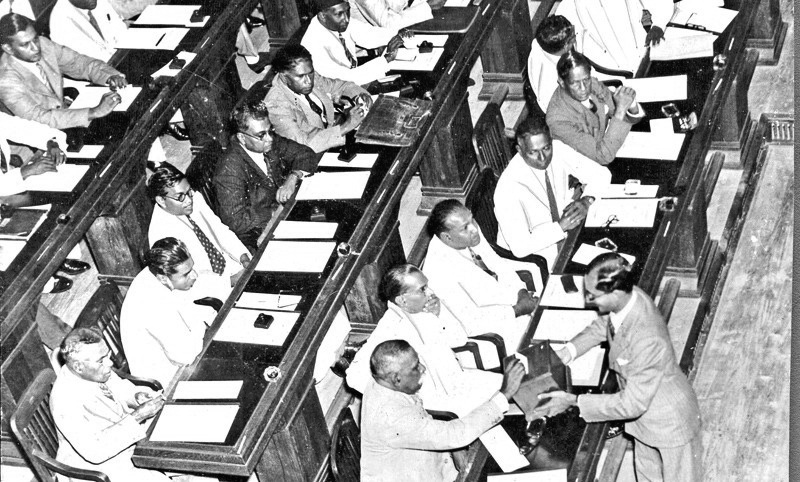
It is obvious that this was a victory of tribalism for all the benefits of this victory was snatched away by a rural Tribal Family named Rajapaksha family of Madamulana direction. And this victory became unusable because of the way the Rajapaksa family used it opportunistically to absorb the People's National Capital into their family only. And this thrusted the whole national economy into chaos. Champika cannot wash his hands like Pontius Pilate that he has done nothing to bring this chaos to the nation.
As a result of the glory of that victory, an empty person named Mahinda Rajapakse started engaged in a non-political practice that contradicts with the basic principles of Neo-modern-economic-science as well as modern-economic-science. Thus, at the conceptual level, he appeared as a Pre-Colonialist-king (Maharajano), and at the practical level, he secretly acted as a mafia leader who did whatever it took to preserve power and steal the people's wealth.
When the war was won, during its honeymoon period, a nation-wide unofficial Sinhala-only sectarianism rose to its head. All the Sinhalese of the country belonged not to this dogma. Yet only the Sinhalese who supported Mahinda were accepted as true Sinhalese of the country. People who had not supported Mahinda was labeled as traitors of the nation. Consequently, most of the citizens, villagers plus the rural dwellers near forests of this island nation indulged in the imaginary-paranoia that a king of the type that existed before the whites took over Ceylon had descended to the country. Accordingly, they had a temporary mental amusement from this paranoia for a while.
At that time, Champika Ranawaka did not say a word to stop this prejudiced practice of the people or the Rajapaksha clan. If so, he should leave the government at the same time as Mangala and Sripathy left the government. Or he should have left Mahinda before Maithreepala came into the scene as the presidential candidate. Even when the Mahinda’s clan hesitated not to interpret the temporary defeat and subjugation of Tamil tribalism to Sinhalese tribalism as a war of independence won from the whites, Champika was still embracing Mahinda at that period of time.
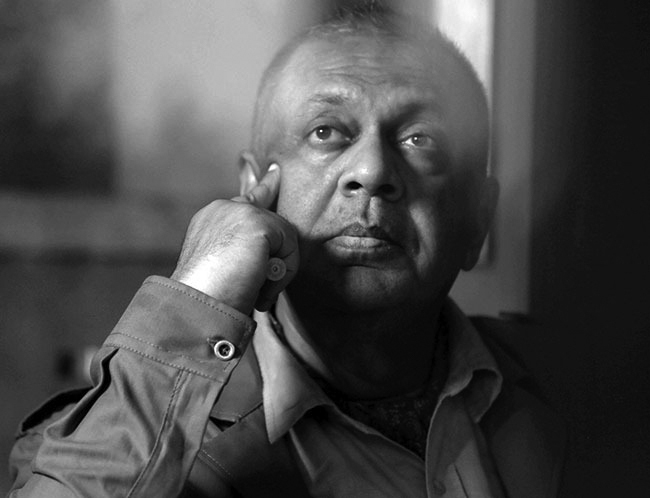
Due to Mahinda's opportunistic racism derived from Chamipika's partial racism, the racist political discourse, which was somewhat rational in Champika and which was somewhat controlled by him, blurred into a modern-mafia practice cloaked with an old-ethno-king concept that even Champika could not control. This situation slowly went to an anti-social level, even disregarding international rules and regulations. Polygamy and murder were the equivalent of a mixed Caligula-politics as the country began to spiral into a social-mental-illness. As a result, the society went wild and consider that engaging too much in sexual intercourse like Mahinda-Namal-Yoshita-Chichi, and exploiting any Capital without a conscience like the Mahinda family as the way of life.
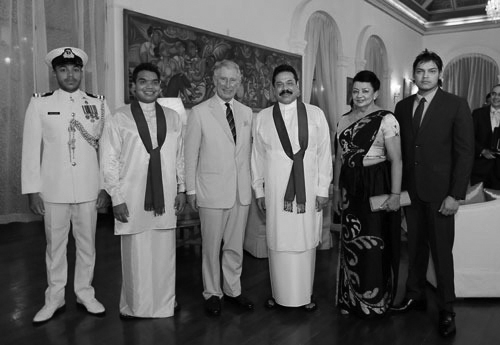
People were actually willing to engage in these two prejudices, and despite superficially ignoring the true Buddhist doctrine, they were occupied in an irrelevant religious faith called ‘Buddhism’ that left its principles the 'Prathipaththi Pooja' and were doped only by the secular religious practices the 'Amisa Pooja'. At heart, they made it their life's dream to have hyper-hedonistic fun like a member of the Rajapaksa family. Only a perceptible minority of the entire intellectual community saved their individual lives through an anti-social way by irresponsibly immersing themselves in a terrifyingly profound silence.
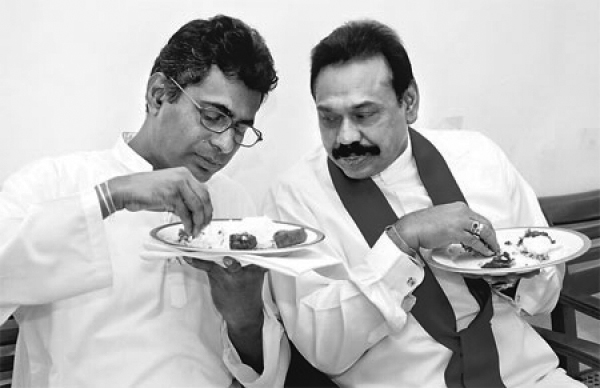
Majority of the voters were not intelligent enough to introspect this sudden risky and dangerous multifaceted nature of politics seriously from a clear sociological viewpoint. Consequently, they became part of it. Mahinda Rajapakse, who was well aware of this ignorance of the people from his empirical political experience, created a family tree for himself, broke the capital belonging to the people of the country block by block and fattened his official and unofficial bank accounts all over the world.
No matter what political concepts we have in our minds, when the material factor of Capital dissolves, the economy becomes a skeleton without flesh. Mahinda’s weird administration hesitated not for a moment to eat this meat called the Capital within the skeleton named economy, or even to make soup of this skeleton. The two parties, Champika and JVP, which did not have a correct pre-evaluation of Mahinda's character, were too late to withdraw from Mahinda's family-oriented politics. So this monstrous apolitical practice of Mahinda started to spread more and more across the country like a rooted octopus even after they withdraw from Mahinda’s clan.
If you see how deeply rooted the organs of the Mahinda’s octopus were in the administrative and security structure of the country, even though the UNP officially acquired the ruling power-structure by making Maithripala Sirisena, a villager, as the president, through Ranil becoming the prime minister, UNP was not able to really quadruple the obtained state power. The state administration and security machinery had not been lost to the Rajapaksa clan so much that they could not launch a successful coup that would defeat Ranil and the UNP. This is why the Rajapakses were still effortlessly involved doing politics within state administrative and security structures even during the Sirisena-Ranil regime. So they fearlessly declared a political war against Ranil and the UNP.
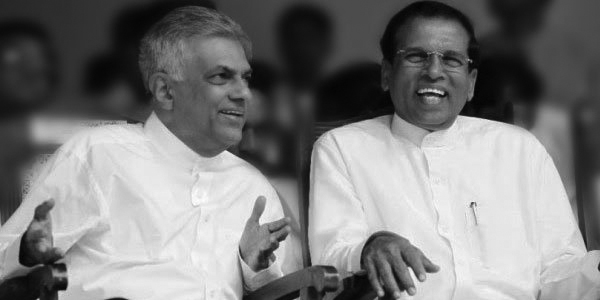
Initially, this anti-national and anti-economic movement lasted for 10 years until the 9th January 2015, and during that decade, all the factors related to an economic bankruptcy of a country were created. Surpassing all the previous administrations that lasted for 57 years until then, this economic disaster was reaching a Point of NO Return even in the time when the Sirisena-Ranil Coalition came to power. Thus, the current economic disaster was something unconscious to the Rajapaksa clan. They never foresaw it. I say this historical conjuncture of bankruptcy is an unconscious matter for the Rajapaksa clan, because all the finance ministers of Mahinda Rajapaksa and Gotabaya Rajapaksha were minors who had minimal knowledge about the function of a Global political-economy. This is why they were not afraid to indulge in any madness related to the national level economic affairs as well.
The UNP, which had a history of working as an economic party since its inception, had the social responsibility to face Rajapaksa's political misbehavior. But the UNP party structure did not fulfill that responsibility successfully. Organizational activities were often hampered due to the fact that the second-tier leadership within the UNP was not on a stable basis, and outside the UNP, the political cancer of Champika's ethnocentric discourse had become an uncontrollable function due to Rajapaksa’s ignorance.
Ranil's leadership also seemed to cause some decisive damages to the party. Ranil hardly followed the active party developing practice that J.R. Jayawardena, R. Premadasa, Lalith Athulathmudali and Gamini Sadisanayake had whether there was a favorable political moment or not. Ranil did not show a champion leadership who constantly spread his organizational command in the party through strong second-tier leaders, or who constantly monitored whether a given task was done, or who was constantly inquisitive about the organizational strength of the party. Ranil expressed a kind of quiet and passive political behavior of an intellect with such an attitude of following the dialectics of nature as if he were waiting for a fruit to come from a tree and fall into his mouth. Due to this behavior, almost everyone who was competing for the second leadership of UNP was needlessly disappointed.
If we consider the last three decades of the UNP, the UNP, which was a party that was accentuated by economics, had enough political space to subtly seize power by showing its economy-centric political orientation to the people from 1994 to 2005. One the main reason for that was that Chandrika Bandaranaike, then leader of the SLFP followed not a policy that would allow Champika’s ethnocentric politics enter into the State Administrative affairs for she was a woman with an urbanist existence in contrast to the Village Headman like animation of Mahinda Rajapaksa. Relatively, if Champika's ethnocentric political discourse was not embraced by the SLFP (Mahinda), Ranil's political career would have achieved its goals decades before today.
But at that time, UNP leader Ranil did not show interest in making quick decisions in politics. When Chandrika was the President, Ranil came forward to become the Prime Minister with the majority of parliamentary seats for the UNP members such as Johnston Fernando pushed him to do so. Ranil did not think that after becoming the prime minister, he would lose his position in the government if Chandrika wasn’t promptly removed. Accordingly, the title of president was not taken from her soon. Ranil appears to be decent in front of Chandrika. At that time, Ranil must not have had practical understanding about the political practice of Ravi Karunanayake who engaged in the anti-Chandrika campaign when Ranil was the prime minister of the government. Chandrika, seeing Ranil's permissive nature, took advantage of the opportunity and joined hands with JVP and showed her middle finger to Ranil in secret. This was a loss of a favorable opportunity for the UNP to consolidate the presidential executive power of its government.
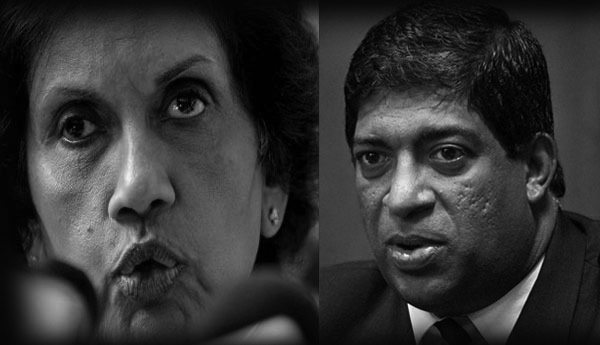
But when N.M. Perera and Colvin R.deSilva entered into a coalition government with Madam Sirimavo, Lanka Samasamaja Party and Communist Party had much recognition and power compared to what JVP had in the probationary government formed with Chandraka. At the very beginning, Maithripala Sirisena jumped into the middle with the nature of a rural villager saying that the region related to Mahaveliya should not be given to the Ministry of Agriculture, which was given to the JVP. Maithripala became bigger than JVP who came to help Chandrika in her difficult time. Vijitha Herath, who was appointed as the Minister of Culture, took the opportunity to build a large theater in Sri Lanka through the Capital of China. Yet Chandrika hypocritically postponed the approval of that project, thinking that it would make the JVP more popular. Later, Mahinda Rajapaksa allowed the project and built that theater, naming it the Nelum Kuluna. Yet initially it was a project that was brought about by Vijitha Herat. In conclusion, JVP benefited not by helping Chandrika to expel Ranil from his opportunity to become the president.
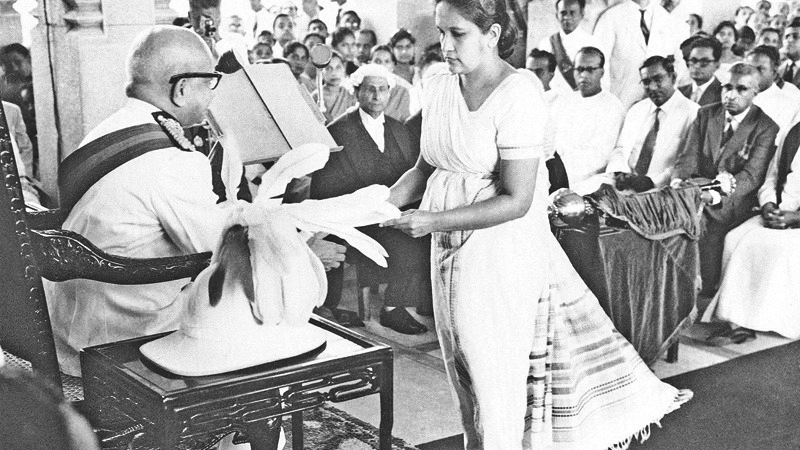
Later, Mahinda became a more progressive leader than JVP for China. Therefore, it cannot be said that the experienced and responsible Chinese Communist Party was unaware of the apolitical practices and arbitrary politics that were irrelevant to the neo-modern-economic standards maintained by Mahinda's absurd administrative structure. That is, in that specific context, the Chinese administration behaved as an opportunistic global capitalist who pocketed their socialist agenda in front of the suffering people of Sri Lanka.
Therefore, it should be understood that even in the last 30 years, Ranil has been able to rule the country as a Prime Minister under a President only for a short period of 07 years and a few months. If all the reasons related to this fall are put on one side of the scale, and the factor of the lack of Ranil's reliance on a second leader and not being tactical and efficient enough to organize the party on the other side, I hope the weight would increase on the second side.
Ranil has not been able to become the president with the power of the UNP as well as the power of the UNP in the parliament has also decreased. Thus, this is a very decisive political moment for the UNP to introspect through its inner structure. That is, if Ranil is not alone in the next Presidential and Parliamentary elections after weighing the mistakes made in the past, not dwelling on them, and learning from them, then Ranil will have a good image among the majority of the United National Party. Ranil will also be able to complete his political career successfully. On the other hand, the opponents of the UNP, who are ethnocentric fans, will also be able to see a great development process that the country can achieve with Ranil's politico-economic knowledge and influences. It will pave the way even for the most rural citizen to enter the process of Global Capitalism and undergo urbanization.
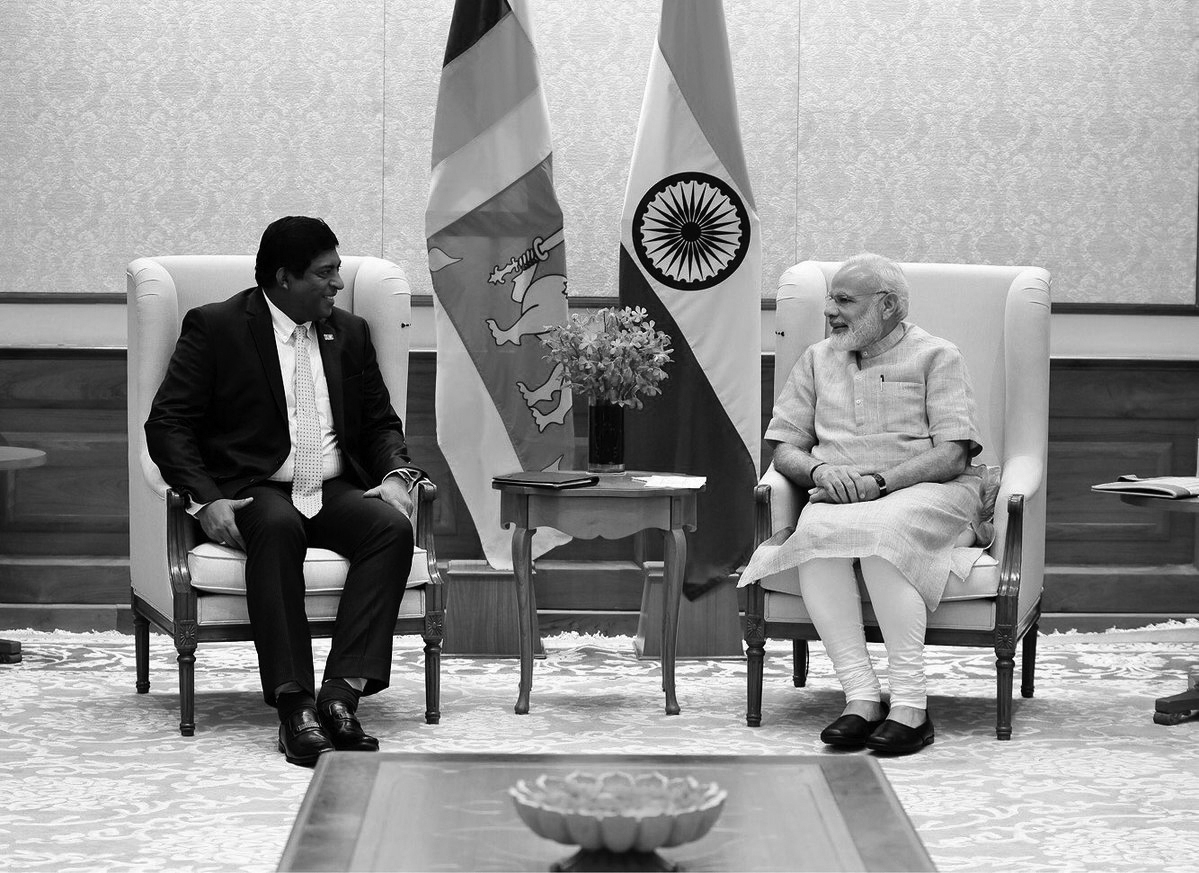
According to unofficial but reliable UNP sources, Ravi Karunanayake, who is already considered the Ranil’s only trump card, will be promoted to the position of Deputy Leader or General Secretary by the coming month of June 2023. If the hopeful news is true, then it seems that Ranil has decided to start the party organization activities in a new positive dimension, and its aim is to reverse all the weaknesses so far and build a future for the UNP. It must be said that accepting someone like Ravi Karunanayake as the second-tier leader of UNP is like declaring war against JVP, the new anti-UNP power block. Therefore, what should be really disturbed by that decision is not the empty Samagi Janabalvegaya of Sajith or the canceled Pohottu Balavegaya of Rajapaksha's, but the Jathika Jana Balavegaya of JVP.
@ Junius Richard




